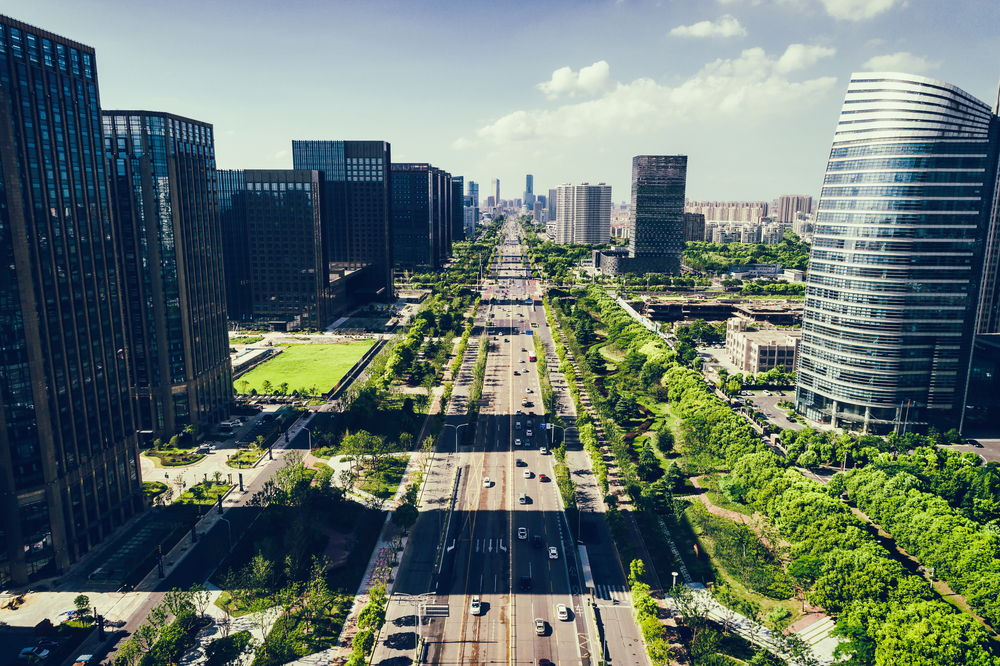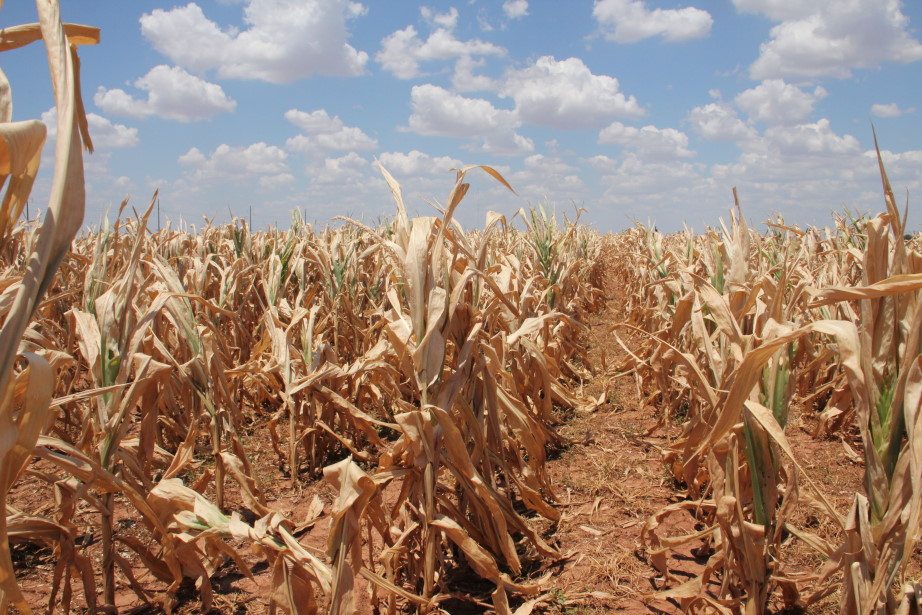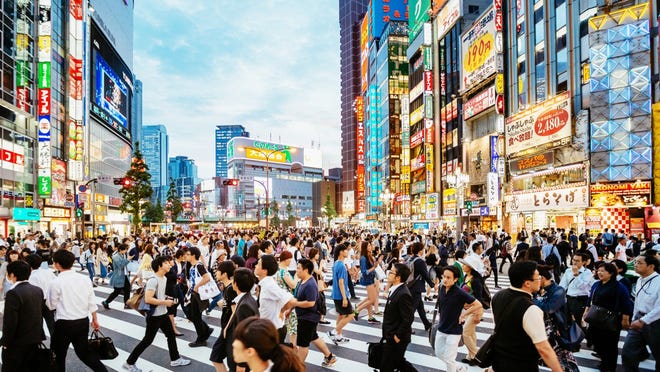—
During the pandemic quarantine, I was given the time and chance to explore topics I am interested in. Climate Change and how it shapes our future is one of the things I seek to explore and study more about. Therefore, I enrolled in an audit online course by Harvard University on EDx on the health impacts of climate change. It was my first time enrolling in an online course by a university, but the experience was priceless. I could study from the best resources including research papers from experts, visual graphs of interesting data and statistics, the discussion videos of the professors and experts at the field, and many others. Upon finishing the course, I wrote an informative essay, using the knowledge I gained from the course as well as further research, in the hope to raise more awareness about this global emergency and powerful solutions humanity needs to focus on.
—
The Health Impacts of the Climate Crisis and Potential Solutions
“Health is the human face of climate change.” said Michelle Williams from the Harvard School of Public Health. Many understand climate change predominantly from only the environmental perspective, leaving out another indispensable effect of the climate crisis: human health. Intense greenhouse gas emissions from anthropogenic sources result in many devastating consequences including sea-level rise and heat rise on land, increased droughts, floods, and extreme weather along with changes in precipitation and more. These unprecedented changes to the environment are triggers to many harmful health risks and diseases that will reverberate globally. The main health risks include those that are caused by heat, air quality, infectious diseases, nutritional diseases and deficiencies, and complications caused by migration.
Climate Change is a global emergency that threatens the well-being of humanity through its many health impacts, and it depends on our actions to divert this fateful path.
The first category of health risks induced by the climate crisis is those that are caused by heat, mainly heat strokes and heat exhaustion. The risks vary by different combinations of heat and precipitation levels. The more heat and precipitation, the higher the risks. Here is the heat index and its health risks in each condition.
The most vulnerable populations to heat-related illnesses include outdoor workers, people with heart failures and diabetes, people who are obese, elders, and pre-pubertal children due to their incapability to shed excess heat well. To further understand how we can reduce heat-related illnesses, we should find it’s main causes. One of the major components that contribute to warming temperatures is the urban heat island — meaning when the temperature in the city region is much higher than the temperature of the rural areas around it. As urbanization increases, so does warming and pollution. Cities are more likely to be hotter than their surroundings due to how they are built with mostly grey asphalt roads and dark roofs (which absorb heat better than white or green surfaces). Actions that are taken to reduce urban heat islands will not only reduce climate change, but will also directly impact many people’s health as well.

One of the most effective ways to decrease heat-related illnesses is to redesign urban environments so they absorb less heat. Some ways are through mandating and encouraging more green buildings and households, planting more trees and vegetations — perhaps through green roofs and hydroponics which are the most efficient methods for urban environments due to small-space requirement and other benefits –, increasing reflective surfaces by using cool roofs, and other energy-efficient appliances and technologies [2]. These alternatives to the conventional infrastructures won’t only help to decrease heat and pollution in the city and increase sustainability and development in cities, but they can also directly benefit the economy, health and well-being of the residents as well. For instance, a report named “The Rise of Green Buildings”[3] from the Economist confirms that “Going green (in buildings) saves money by reducing energy and maintenance costs, and may boost productivity.”
The second component of health impacts caused by the climate crisis is those that are caused by air pollution including Asthma and other chronic respiratory diseases and pollen-allergies. Increased temperature can lead to an increase in ground-level ozone, a highly irritating gas that forms just above the Earth’s surface[4] which can cause inflammation in the airway and damage lung tissue[5]. Furthermore, the increase of carbon dioxide increases pollen output in ragweed plants, which is a big contributor to seasonal allergies, while also lengthening its pollinating season. Additionally, as climate change increases the severity and frequency of droughts and heatwaves, the conditions that trigger wildfires also increase. Wildfires, without even mentioning the health effects, are destructive phenomena — affecting air, water sources and drinking water quality, while destroying countless precious wildlife species. But if we look even more closely, the smoke of burned fires includes many toxic chemicals that are dangerous for human health, including acrolein (a lung irritant), carbon monoxide (which can be fatal at high concentrations), formaldehyde, and benzene or PAHs (all of which can cause cancer). According to the World Health Organization, volcanic activities and wildfires affected 6.2 million people and caused 2400 deaths worldwide in the period of 19 years from 1998 to 2017 [6]. These particulate matters, which are “all solid and liquid particles suspended in the air many of which are hazardous that includes dust, liquid droplets, pollen smoke and more”[7], are contributed mostly by combustion of fossil fuels (mostly coal and diesel). The different sectors that contribute to more particulate matter globally include traffic for 25%, industry for 18%, domestic Fuel for 15%, other human sources for 20%, and natural sources for 22%, according to a research paper titled “Contributions to cities’ ambient particulate matter” by Federico Karagulian and others from Science Direct[8].
Because transportation accounts for so much of the pollution, we can all help to reduce our contribution by using transportation very consciously. Using a bike or walking whenever possible won’t only help to reduce your carbon footprint and help to save lives by not polluting the air, but you will also improve your health and reduce your risks of obesity, heart diseases, and more health complications. Moreover, by choosing to carpool or take public transportation, using energy-efficient appliances, and using electricity consciously, you will save your household’s expenses as well as making a difference to this global crisis.
Another interesting impact that the climate crisis puts into the pool of its many other dangerous health effects is the increase of infectious diseases. The risks of both waterborne and vector-borne diseases will be increased by pollution and the changes in weather patterns. An example of waterborne risk is the toxic algae bloom which, according to the National Oceanic and Atmospheric Administration (NOAA) in the US, is “simple plants that live in the sea and freshwater that grow out of control and produce toxic or harmful effects on people and many marine species” [9].

Although rare, these toxins can cause fatal illnesses including headaches, vomiting, diarrhea, and numbness or tingling if ingested. These toxic algae blooms are triggered by nitrogen from fertilizers and livestock that flow into the water sources, the increase in water temperature, as well as extreme weather events including hurricanes droughts or floods. Despite waterborne illness, climate change also increases the risks of vector-borne diseases, especially malaria. Warmer temperature will be a sweet spot for mosquitos development until it is too warm and is lethal to them. Because different species of mosquitoes adapt and thrive in different ranges of temperatures, it’s complicated to project the increased risks of malaria. According to an article about Climate Change and Malaria on the UN chronicle, written by S.D Fernando, a professor at the Department of Parasitology at the University of Colombo, Sri Lanka, “Variation in climatic conditions, such as temperature, rainfall patterns, and humidity, has a profound effect on the longevity of the mosquito and the development of malaria parasites in the mosquito and, subsequently, on malaria transmission”[10].
Despite the increased risks of both waterborne and vector borne diseases, we can take preemptive actions by reducing the use of toxic pesticides, better managing livestock waste and wetlands, eliminating habitats of malaria-transmitting mosquitoes, and continue other proven strategies to combat these diseases like sleeping in nets. Although climate change is creating a stack of obstacles before us, we still have all of the power and chance to combat these diseases.
When we think about climate change, we often do not know that, in addition to the many above health effects, it also will affect crop yields and alter the nutritional composition of our foods as well. This means the climate crisis threatens the world’s food security by decreasing crop yields as well as its essential nutrients.

As discussed in the above paragraph about air pollution and its contribution to respiratory diseases, more heat produces more ground-level ozone which can also impair plant growth and damage leaves. To illustrate more on this ramification of the climate crisis, an article on the World’s Economic Forum written by Zongbo Shi from the Birmingham University wrote: “Pollution from soot and ozone has caused a major decrease of crop yields in India, with some densely populated states experiencing 50% relative yield losses.” [11]
This means that crop yields are going to boost if the ground-level ozone is decreased. According to the Harvard Course on Climate Change impacts on health, today, ozone toxicity has been estimated to kill enough crops in India to feed 94 million people. In China, the loss of agricultural productivity costs $250 billion per year which equates to about 20% of total agricultural revenue for the nation. [1] In addition, other threats caused by climate change including heavier downpours that will lead to floods, heat, and droughts as well as sea-level rise and salinization of coastal aquifers are all critical factors that will severely affect agriculture in many places. According to a Nature’s research paper, extreme weather events contributed to about 10% loss of agricultural production globally in 43 years between 1964 and 2007. [12]
Besides decreasing crop-yields, more carbon dioxide in the atmosphere also means fewer nutrients on your plate. To enhance your understanding on the relationship between CO2 and nutritions, Kristie Ebi from the center of Health and Global Environment put it best during her TED talk: “that plants, when they have higher carbon dioxide, increase the synthesis of carbohydrates, sugars, and starches, and they decrease the concentrations of protein and critical nutrients. And this is very important for how we think about food security going forward. ” [13]

According to her talk and other studies, climate change decreases the essential nutrients and vitamins including protein (a critical energy provider, immune health bolster and helps to maintain and grow tissues), zinc (critical for the immune system and needed for the sense of smell and taste, leading to lack of appetite if lacked), iron (important for metabolic processes, especially the transport of oxygen in the red blood cells) and the B vitamins (converting food into energy) which will increase deficiencies and associated health risks globally. According to the World Health Organization, 1.4% -1.5% (0.8 million) deaths are attributable to zinc and iron deficiency worldwide. [14] In addition, “there are about 1 billion people who are zinc-deficient” according to Kristie.
Furthermore, climate change is also leaving immense effects on fisheries. Anthropogenic impacts on the ocean including overfishing along with the effects of climate change including ocean acidification and the loss of corals are huge menaces to the fisheries industry, leading to shifts of diets to more caloric and highly processed foods for coastal residents [1]. This significant impact of the climate crisis on our very plates is especially concerning, considering how much of the world’s population right now is already facing this immense diet-related problem of starvation, deficiencies as well as obesity.
In order to ensure our food security is stable for the future generation, the world needs to limit, if not prevent, the release of more CO2 in the atmosphere or create technologies to plant crops protected from the emissions of this gas.
Lastly, all of the effects of climate change including food insecurity, sea-level rise, salinization, water shortage, and many other extreme weather events are forcing many climate-refugees out of their homes. In some cases, like in the Syrian Civil War, climate change is an underlying factor that can intensify situations and leads to migration.

These refugees who must move against their will surely face tremendous amounts of hardships and health effects, ranging from mental health issues including Post Traumatic Stress Disorder (PTSD), depression or anxiety, as well as physical illnesses including deficiencies, and pollution exposure. Moreover, most refugee camps lack access to clean water and basic sanitation which can trigger an array of illnesses. Despite these hardships, climate refugees aren’t considered as refugees defined by the official definition by the UN, depriving them of the privileges other refugees have.
The most efficient way to reduce climate-refugees is to invest more in climate resilience in vulnerable communities which include small islands in the Pacific and other oceans that are vulnerable including Kiribati, Tuvalu, and others, least developed countries in Africa or Asia, coastal cities and more.
A global crisis calls for global actions. In these past several years, more and more people are exposed to more awareness of climate change and how they can act to help prevent further extreme events and mitigate the effects of our pollution. Organizations, private companies, and academic institutions have been joining hands to accelerate research and framework for actions and policies to be adopted in places needed. Different facilities have different responsibilities to complete their roles in this crisis.
Academic Institutions need to actively educate students on important data and statistics that are needed for actions to take place. Such data includes the causes of climate change and its impacts on the economy, environment, health, and more, as well as proven plans and frameworks for actions that can be taken to reduce them. However, the subjects that students need to know to effectively understand the problems and take action go beyond just climate science. Students also need to learn about psychology, anthropology, and sociology to understand how social and cultural norms along with the way humans think can affect this problem.
Furthermore, we also need more experts and scientists who research more scientific evidence and create groundbreaking technology to help solve this global problem. To see more studies and research, we need to encourage more investment from governments, organizations, and private corporations in this field. By finding new ways to partner with the public and the private sector (including Google or Facebook), academic institutions can accelerate the movement of knowledge generated within themselves to the rest of society. Without bridging the knowledge, data, and insights from research facilities like universities to other organizations in other sectors, we can’t effectively implement changes in our society.
Actions should also be focused on the places that contribute most to the problem, especially cities. Cities account for about 2/3 of global energy consumption and 70% of greenhouse gas emissions.

To intensify the problem, in 2050, it is estimated that 68% of the people will be living in urban areas. It’s crucial for the government in the cities, especially their leaders, to focus their attention on working to solve climate-related problems for their residents because they are the closest and can see closely the problems that they are suffering from the effects of climate change.
Another important aspect of climate change action is financial needs and aids. This is when big bank facilities, like the World Bank, need to come to place. The financial need to assist climate change adaptation demands between 30 billion to 300 billion US dollars by 2050. [15] Given this immense financial need, the world bank and wealthy countries can invest more in financial aid for vulnerable countries in need.
The call for action especially needs to be taken into account in the individual level.
While these big corporations and governments have huge responsibilities to take care of, we, as individuals and responsible citizens, share this obligation to create a hopeful future for our children and their children. We need to be constantly conscious of the irreversible impacts we leave on this planet and take the responsibility to commit to reducing those impacts. We need to be on the right side of history, and the only way you can do that is to act now and encourage others to do the same. The biggest problem to change is that we believe that others will carry the responsibility to change or that others will save the planet for us. However, do we even have a choice to neglect the responsibility to take action when our planet is in a stage of a crisis? I believe that we don’t have a choice when it comes to an emergency as immense as this global climate crisis. We must educate ourselves, spread awareness, fight for change, and act now before it is too late. Every small action is your choice, and it’s important to understand the worth of those every small contribution you can make. The fate of the future is on our hands, and how it unfolds depends on how we choose to write it now.
Bibliography:
-
- “HarvardX: PH278.Ax The Health Effects of Climate Change.” Course, Harvard, courses.edx.org/courses/course-v1:HarvardX+PH278.Ax+1T2020/course/.
- (This above citation is a course on Edx I took to study the health impacts of climate change and which most of this essay is referenced to.)
- “What You Can Do to Reduce Heat Islands.” EPA, Environmental Protection Agency, 6 Sept. 2019, www.epa.gov/heatislands/what-you-can-do-reduce-heat-islands.
- “The Rise of the Green Building.” The Economist, The Economist Newspaper, www.economist.com/technology-quarterly/2004/12/04/the-rise-of-the-green-building.
- Canada, Environment, and Climate Change. “Government of Canada.” Canada.ca, 19 May 2016, https://www.canada.ca/en/environment-climate-change/services/air-pollution/pollutants/common-contaminants/ground-level-ozone.html
- “Climate and Health.” Asthma and Allergy Foundation of America, www.aafa.org/climate-and-health/#:~:text=Impact%20of%20Climate%20Change%20on%20People%20With%20Asthma&text=Climate%20change%20increases%20water%20and,respiratory%20disease%2C%20such%20as%20asthma.&text=Increased%20temperatures%20due%20to%20climate,inflammation%20and%20damages%20lung%20tissue.
- “Wildfires.” World Health Organization, World Health Organization, www.who.int/health-topics/wildfires#tab=tab_1.
- “Air Pollution Particulate Matter.” Particulate Matter: 1. What Is Particulate Matter (PM)?, Greenfacts, www.greenfacts.org/en/particulate-matter-pm/level-2/01-presentation.htm#:~:text=Particulate%20matter%20is%20the%20sum,size%2C%20composition%2C%20and%20origin.
- Rohani, Heather Adair, et al. “Contributions to Cities’ Ambient Particulate Matter (PM): A Systematic Review of Local Source Contributions at Global Level.” Via Caravaggio 16, I-28922 Verbania, Italy b World Health Organization, Department of Public Health and Environment, 20 Avenue Appia-1211 Geneva 27, Switzerland c International Institute for Applied Systems Analysis (IIASA), Schlossplatz 1, A-2361 Laxenburg, Austria d European Commission, Joint Research Centre, Institute for Environment and Sustainability, Via Enrico Fermi 2749, Ispra, VA 21027, Italy, Science Direct, 2015.
- What Is a Harmful Algal Bloom? National Oceanic and Atmospheric Administration, 27 Apr. 2016, https://www.noaa.gov/what-is-harmful-algal-bloom
- Fernando, S.D. Climate Change and Malaria – A Complex Relationship. United Nations,https://www.un.org/en/chronicle/article/climate-change-and-malaria-complex-relationship
- Shi, Zongbo. Why Air Pollution Reduces Crop Yields. World Economic Forum, 4 Nov. 2014, www.weforum.org/agenda/2014/11/air-pollution-reduces-crop-yields/.
- Lesk, C., Rowhani, P. & Ramankutty, N. Influence of extreme weather disasters on global crop production. Nature 529, 84–87 (2016). https://doi.org/10.1038/nature16467
- Ebi, Kristie, director. How Climate Change Could Make Our Food Less Nutritious. TED, Apr. 2019, www.ted.com/talks/kristie_ebi_how_climate_change_could_make_our_food_less_nutritious?language=en.
- The World Health Report | Chapter 4. World Health Organization, 2 Nov. 2010, www.who.int/whr/2002/chapter4/en/index3.html.
- Dougherty-Choux, Lisa. “The Costs of Climate Adaptation, Explained in 4 Infographics.” World Resources Institute, 26 Sept. 2018, www.wri.org/blog/2015/04/costs-climate-adaptation-explained-4-infographics.
—
Here is the pdf document of this essay: Health Impacts of Climate Change Essay.
—




